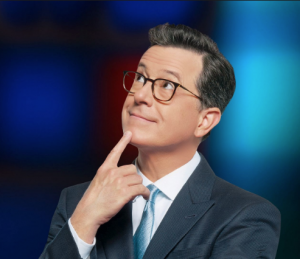As readers of this blog already know, I have been travelling to different cities around the world to share my ideas about the link between business strategy and geo-politics. Last week I was in Zurich giving my talk and engaging with the alumni and their guests when one of our older alumni asked if I encouraged people to seek out alternate sources of information about the places they do business in and what is going on in the world.
He specifically recommended a website called Armstrong Economics and another called Zero Hedge.
I have added links to the two sites not because I agree with the articles or believe what some of the stories say but precisely because I do not. Both sites appear to occupy an alternate reality, or at least pursue alternate narratives about what the state of the world actually is.

Echoing comedian Stephen Colbert’s concept of Truthiness , i.e. a piece of information that sounds like it could be true but is not, the internet is awash with articles, blogs and stories which are essentially false. President Trump adds to the climate of distrust when he charges well established media outlets of reporting “fake news” and distrusts his own intelligence services.
It seems we feel emotions stronger than we process facts and data. Phycologists talk about denial when we simply ignore those facts which do not fit into our preconceived ideas. In an article in the Guardian, Keith Kahn-Harris goes even further and talks about a new age of “denialism”.
After fielding the question and effectively urging everyone to gather as much data as they could in order to make up their own minds, I continued speaking with the alum during the reception which followed the talk.
Essentially the former student believed that outlets like the New York Times and the Financial Times had lost their journalistic integrity, were politically compromised, and gave a distorted view of the world. He went on to say that while climate change was real, it was far from clear that carbon emissions had anything to do with it and the real culprit was gamma rays, or something, coming from deep space. Another former student chimed in to say that the concentration of carbon dioxide in the atmosphere was very low and therefore the whole thing could not possible be true.
What happend to me when speaking with these alumni is that I realized that I am, to some degree, guilty of the same type of psychological reaction that I have normally associated with others. I for example, believe that the IPCC does good science and is telling the truth. I also subscribe to the New York Times and rely on it and other mainstream media outlets to know what is going on in the world.

My reaction is to disbelieve many of the articles on web sites like the ones mentioned above and I really did not know how to structure a conversation with the two alumni at the Zunfthaus zur Meisen in Zurich.
The episode reminded me of an experience in Shanghai a couple of years ago when I was in a neighbourhood far from the comfortable expat community in Pudong. Frustrated by my lack of Chinese, one person started speaking louder to me in the hope that I would finally get it and finally used google translate to communicate with me!
At issue is that the world is facing enormous challenges associated with our rising population and global prosperity.
While my conviction is that we have the science, creativity and human values needed to solve these problems, I am increasingly concerned about our politics and if the level of our political discourse, including my own, is really up to it.

